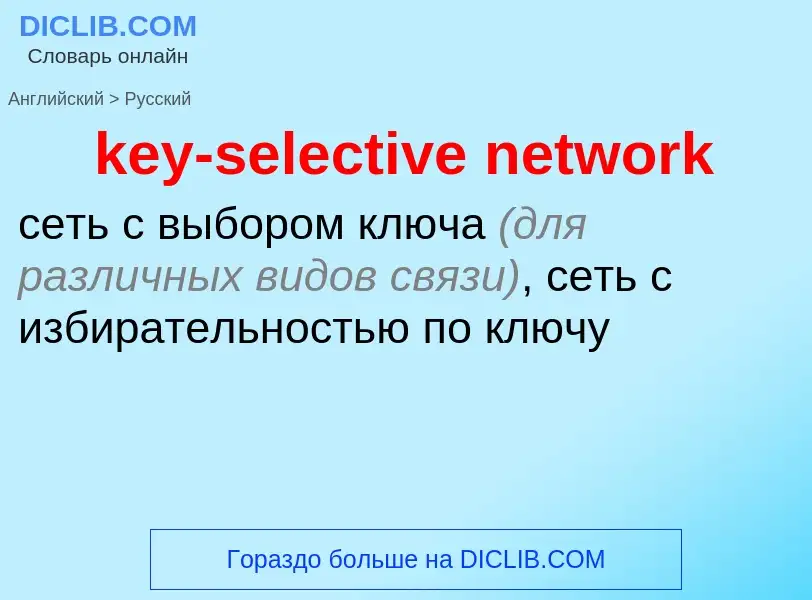Μετάφραση και ανάλυση λέξεων από την τεχνητή νοημοσύνη ChatGPT
Σε αυτήν τη σελίδα μπορείτε να λάβετε μια λεπτομερή ανάλυση μιας λέξης ή μιας φράσης, η οποία δημιουργήθηκε χρησιμοποιώντας το ChatGPT, την καλύτερη τεχνολογία τεχνητής νοημοσύνης μέχρι σήμερα:
- πώς χρησιμοποιείται η λέξη
- συχνότητα χρήσης
- χρησιμοποιείται πιο συχνά στον προφορικό ή γραπτό λόγο
- επιλογές μετάφρασης λέξεων
- παραδείγματα χρήσης (πολλές φράσεις με μετάφραση)
- ετυμολογία
key-selective network - translation to ρωσικά
Ορισμός
Βικιπαίδεια
Selective exposure is a theory within the practice of psychology, often used in media and communication research, that historically refers to individuals' tendency to favor information which reinforces their pre-existing views while avoiding contradictory information. Selective exposure has also been known and defined as "congeniality bias" or "confirmation bias" in various texts throughout the years.
According to the historical use of the term, people tend to select specific aspects of exposed information which they incorporate into their mindset. These selections are made based on their perspectives, beliefs, attitudes, and decisions. People can mentally dissect the information they are exposed to and select favorable evidence, while ignoring the unfavorable. The foundation of this theory is rooted in the cognitive dissonance theory (Festinger 1957), which asserts that when individuals are confronted with contrasting ideas, certain mental defense mechanisms are activated to produce harmony between new ideas and pre-existing beliefs, which results in cognitive equilibrium. Cognitive equilibrium, which is defined as a state of balance between a person's mental representation of the world and his or her environment, is crucial to understanding selective exposure theory. According to Jean Piaget, when a mismatch occurs, people find it to be "inherently dissatisfying".
Selective exposure relies on the assumption that one will continue to seek out information on an issue even after an individual has taken a stance on it. The position that a person has taken will be colored by various factors of that issue that are reinforced during the decision-making process. According to Stroud (2008), theoretically, selective exposure occurs when people's beliefs guide their media selections.
Selective exposure has been displayed in various contexts such as self-serving situations and situations in which people hold prejudices regarding outgroups, particular opinions, and personal and group-related issues. Perceived usefulness of information, perceived norm of fairness, and curiosity of valuable information are three factors that can counteract selective exposure.





![ii-V<sup>7</sup>-I progression]] in C [[File:Ii-V-I turnaround in C.mid]] ii-V<sup>7</sup>-I progression]] in C [[File:Ii-V-I turnaround in C.mid]]](https://commons.wikimedia.org/wiki/Special:FilePath/Ii-V-I turnaround in C.png?width=200)
